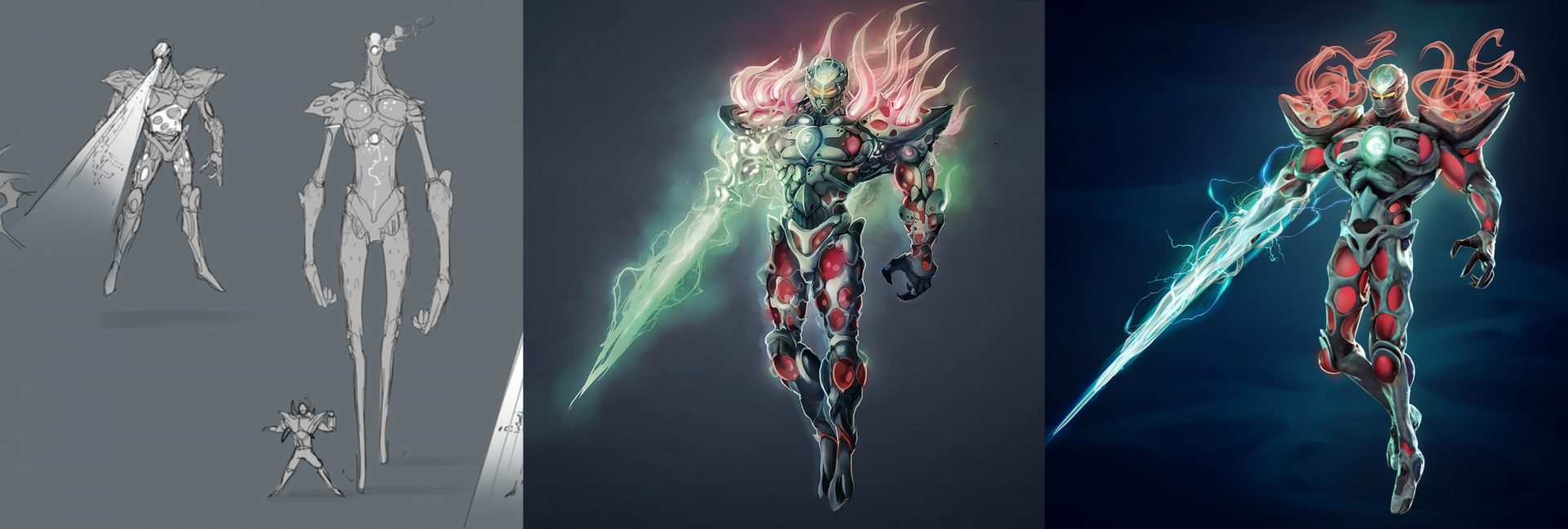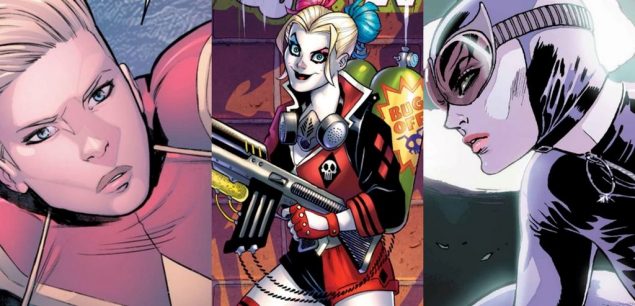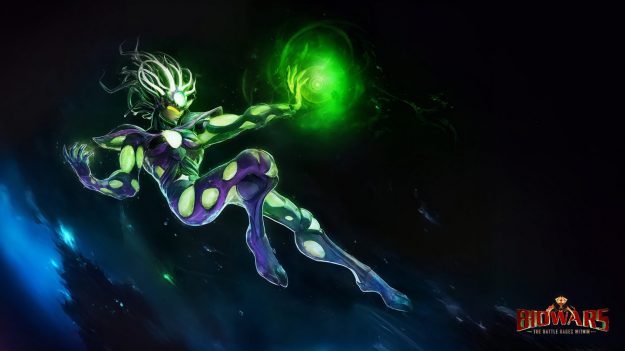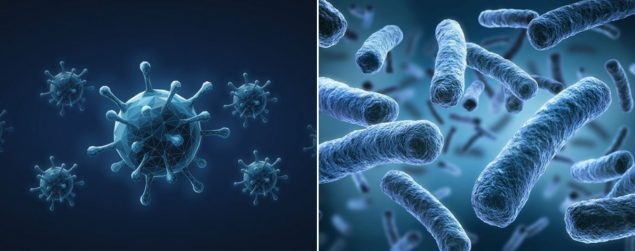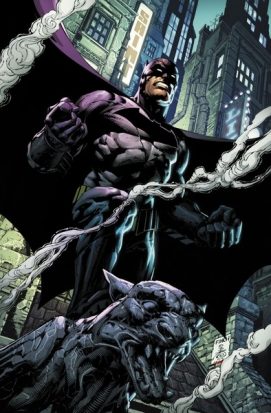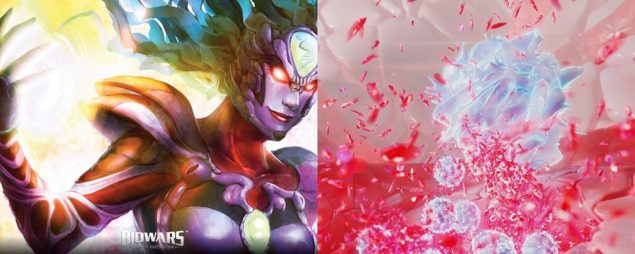Related Resources
Character design is an exciting journey that begins with humble sketches and evolves to inks, colors and, lastly, 3D designs.
We will show you how we created Cytox — a Natural Killer Cell and a fearsome protector of the BIOCOSMOS — and how we explored various poses, expressions and details to define Cytox’s personality and story.
1. The Sketching Phase
As a Natural Killer Cell, Cytox is merciless towards pathogens.
He silently roams the host’s bloodstream, looking for signs of trouble.
Cytox is the body’s elite warrior.
Once he spots an invader, he unleashes powerful cytotoxic blasts at the enemy, which rupture and destroy both the host and the pathogen hidden within it.
Yep, Cytox needs to prevent an infection from spreading — even if that means killing the fellow BIOWARRIOR, so even his allies fear him.
Sooo, how did we design a character as powerful as Cytox?
It all started with a concept — we wanted to design a character who incorporates features of real-life Natural Killer Cells.
In the initial sketches bellow, you can see that we experimented with the cell-like textures as well as the size, the shape and the look of Cytox’s body.
Natural Killer Cells scan the surroundings looking for signs of trouble, hence the rays coming out of Cytox’s eyes:
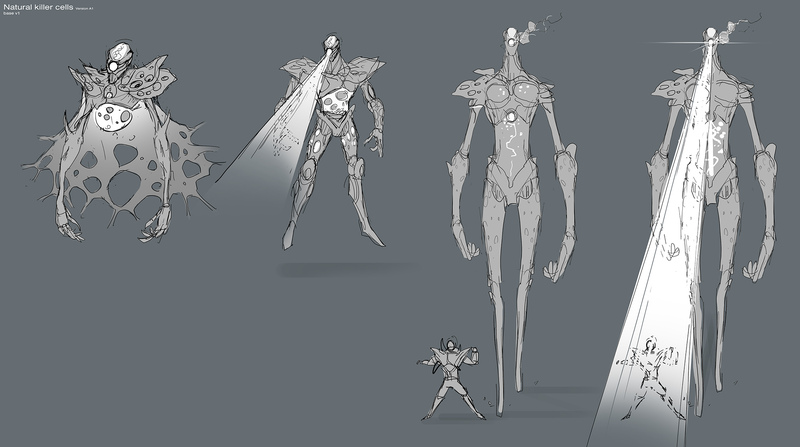
As a powerful warrior of the immune system that faces scary threats, Cytox needs a weapon. So, we gave him a sword that looks as if electricity is continuously passing through it, highlighting Cytox’s never-ending mission of protecting the body from harmful pathogens.
Then, we added an armor and a helmet to his body, because soldiers need protection, head to toe.
In between the armor, you can see patches of Cytox’s body — at these initial stages of designing Cytox, the body had no particular texture.
We continued to experiment with the eyes. We kept them piercing and electric.
Natural Killer Cells have receptors on their surface. They use them to, among other things, launch cytotoxic blasts at all things infected, so we played a bit with details attached to Cytox’s body:
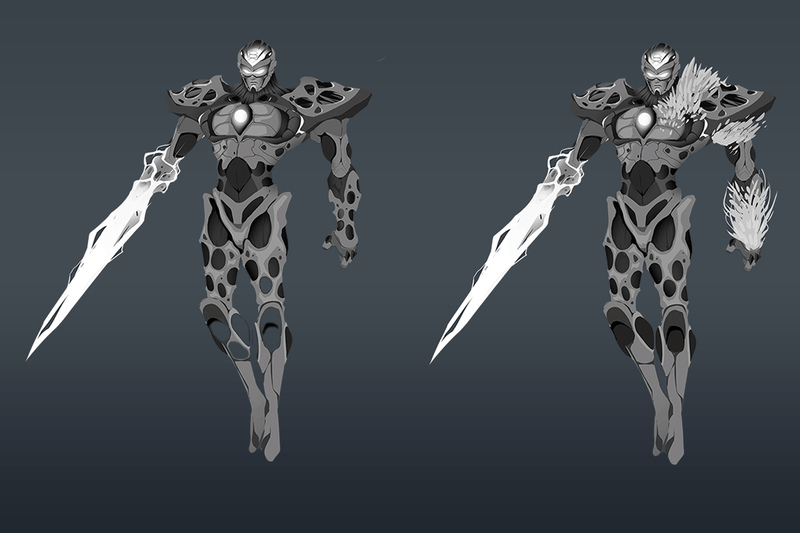
We then tweaked a bit the look and the position of the receptors, while also changing Cytox’s legs and his arms.
We went back and forth between creating a bulky character and a slenderer one:
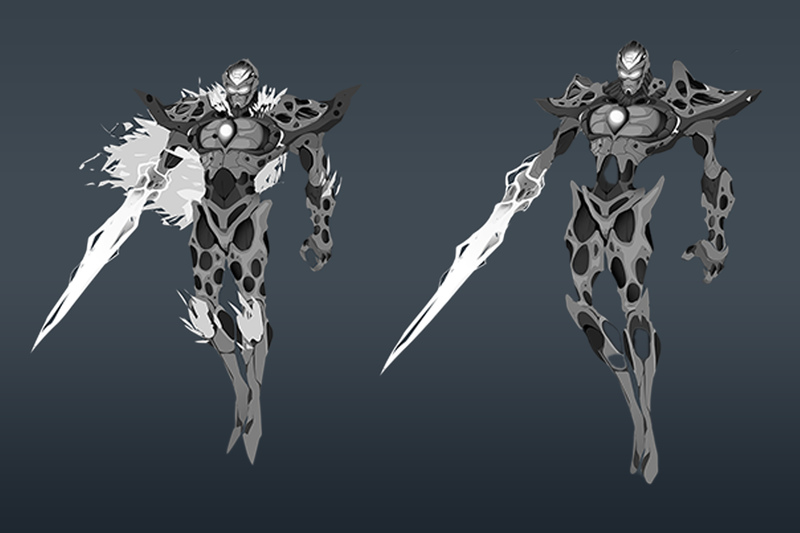
We continued to play with the shape and the size of Cytox’s body as well as his receptors:

We particularly liked the version of Cytox with large receptors coming out of his shoulders and back and we decided to go with that one.
As you can see, getting a character’s appearance just right can take a while — and that’s okay!
When creating a character for your comic book, keep going and refining their appearance until it’s up to your taste and requitements!
2. The Inking Stage
Once the sketch was ready, next came the inking stage.
We had a lot of fun experimenting with the interplay of light and dark and finding the right position for the electric-like effect:
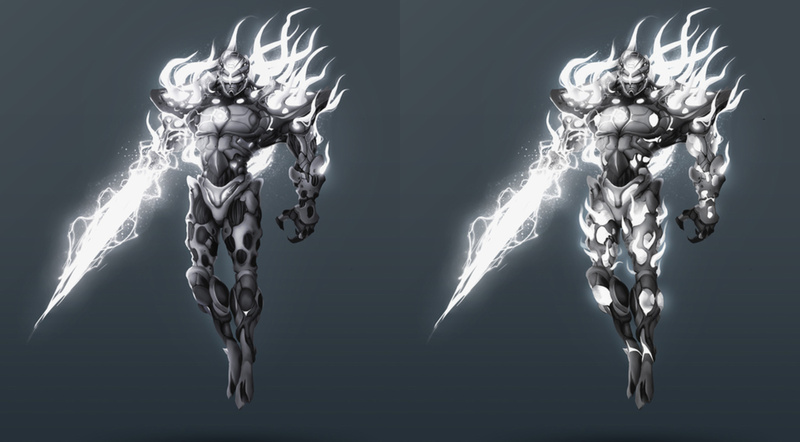
We settled on this version:
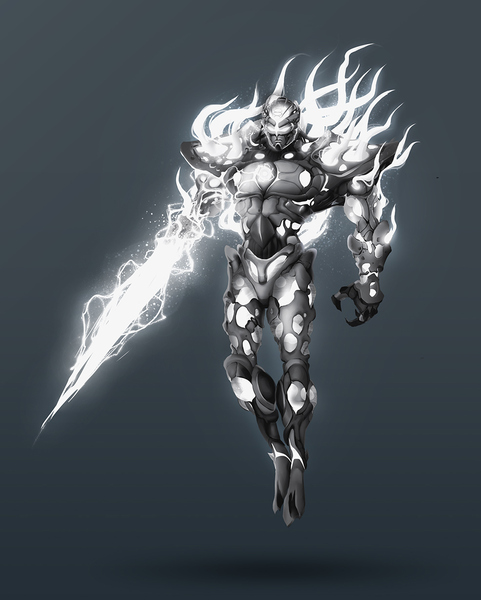
3. The Coloring Stage
Once the sketches are refined and the character’s design solidified and inked, it was time to infuse Cytox with vibrant colors.
We kept to greens and reds, to highlight Cytox’s nature of a Natural Killer Cell.
The colors gave him depth and dimension and brought him to life.
Just look at him — it’s no wonder he’s so feared by his friends and enemies alike:
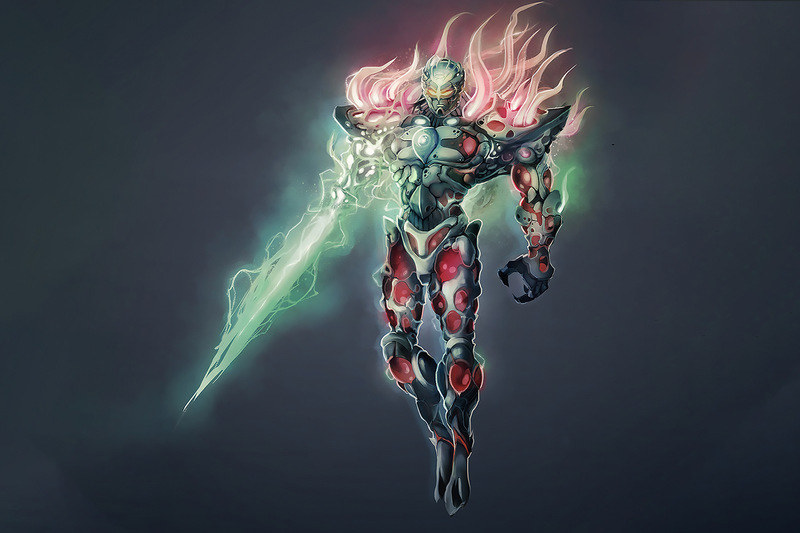
4. Cytox’s Jump To Third Dimension
Through the magic of 3D sculpting and modeling and with meticulous attention to detail, Cytox gained all the more volume and depth.
With some 3D magic, we refined his appearance to achieve a sense of realism:
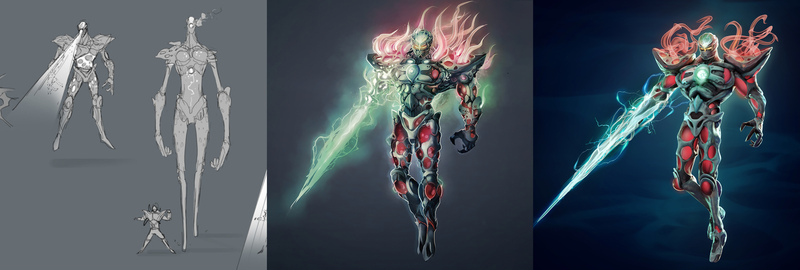
From the humble beginnings of a sketch to the awe-inspiring depths of 3D design, Cytox’s evolution is a beautiful example of the power of imagination and the heights a creative mind can achieve with great dedication and perseverance!

